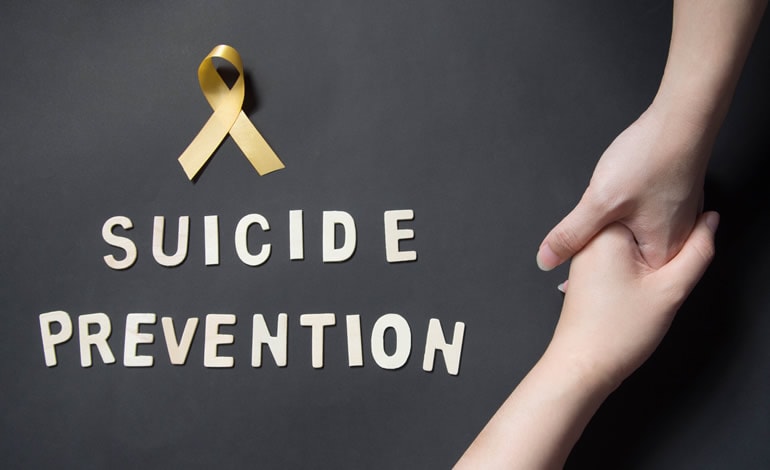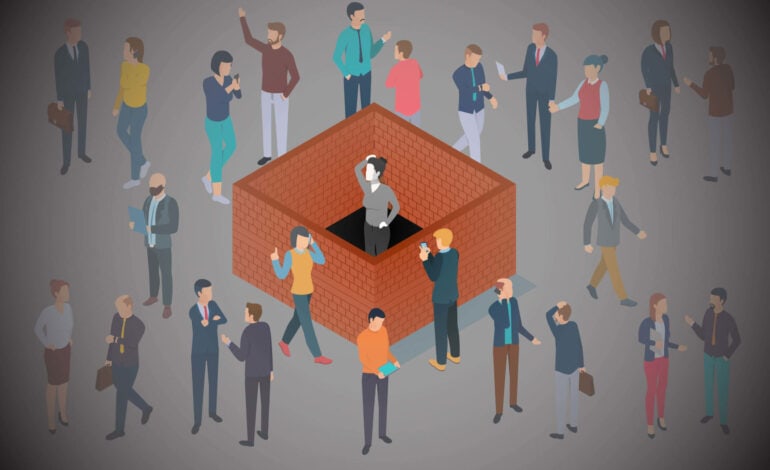More than 800,000 people die by suicide every year, and up to 25 times as many make a suicide attempt. Each of these individuals is a son, daughter, brother, sister, friend, or even a parent themselves. Suicide affects the individual’s entire community and network of family, friends, and coworkers. Suicide is the third leading cause of death among young people, and men are more successful in the first attempt, whereas women attempt suicide more often.
“September is National Suicide Prevention Awareness Month—a time to share resources and stories to shed light on this highly taboo and stigmatized topic. We use this month to reach out to those affected by suicide, raise awareness, and connect individuals with suicidal ideation to treatment services. It is also important to ensure that individuals, friends, and families have access to the resources they need to discuss suicide prevention”.
Preventing suicide saves someone’s life, allowing them to live a little bit longer to experience a little bit more joy and love. So how can our nation or individual help by preventing suicide?
Understanding suicide
For most, suicide is not a decision one makes at random. Most individuals who have attempted suicide are often riddled with underlying mental health disorders such as depression, anxiety, bipolar disorder, schizophrenia, or substance abuse such as alcohol or opioid addiction. Most individuals display warning signs that they are under a severe amount of stress and are not coping well. These warnings signs can be subtle, from having trouble sleeping, experiencing anxious thoughts, and having low self-worth to apparent signs such as angry outbursts, extreme mood swings, and isolation. Individuals will most likely reach out to someone for advice or help, but others may often not take them seriously or think they are just going through a rough time and will overcome the struggle.
Warning signs associated with suicide
Belligerent behavior
Emotional breakdowns
Verbal outbursts
Withdrawal from friends/social isolation
Writing or talking about suicide
Extreme mood swings
Reckless behavior
Refusal to engage in daily responsibilities
Giving away personal items of worth such as jewelry or furniture
Preventing suicide: tips to help your loved one
Talking and learning about suicide is just as crucial as providing support to a loved one, educating yourself on the topic, and being prepared if this issue does arise in your life. Suicide prevention is possible with the right support system and with the right help.
Remove means such as guns, knives, or stockpiled pills.
Calmly ask simple and direct questions.
Have open and honest conversations about suicide. Don’t be afraid to ask difficult questions such as “Are you having thoughts of suicide?” or “Do you have a plan for how you would kill yourself?”
If there are multiple people, have one person speak at a time.
Ask what you can do to help.
Don’t argue, threaten or raise your voice.
Don’t debate whether suicide is right or wrong.
If your loved one asks for something, provide it, as long as the request is safe and reasonable.
If you are nervous, try not to fidget or pace.
If your loved one is having hallucinations or delusions, be gentle and sympathetic, but do not get in an argument about whether the delusions or hallucinations are real.
It is important that you try to provide comfort and peace if an individual reaches out to you. Of course, it is always best to “reach in”, meaning checking on the people you care about since many individuals in dire situations may not feel comfortable reaching out.
Unfortunately, if you try to reach out, many individuals may be in denial or become angry and refuse help. If you feel you have done everything to try to help them out of this situation and they are still in danger, do not be afraid to have the police involved. The police can intervene when necessary and can work closely with psychiatric treatment teams for a mandated evaluation if they think the individual is in danger of harming themselves. If you are uncomfortable calling local law enforcement, try calling the National Suicide Prevention Lifeline: 1-800-273-TALK (8255).
Crisis hotlines
1-800-273 TALK (8255)
Text NAMI to 741-741
911
Suicide prevention lifeline
Veterans crisis hotline
Send a text to 838255
Akua Mind & Body treatment
Akua Mind and Body is a full-service treatment program that offers a wide range of “east meets west” treatment modalities for many different populations struggling with mental health and substance use disorders. Akua makes your recovery a priority. Akua Mind and Body treats co-occurring disorders and works diligently with each client and their family to ensure that treatment is specifically tailored to their needs, and not just their disorder.
Akua Mind and Body offers detoxification, intensive treatment programs, and virtual outpatient treatment programs. Akua Mind and Body uses a blend of holistic approaches combined with evidence-based treatment to help individuals who have been affected by substance use and mental health disorders to recognize their underlying triggers and develop healthy coping skills. Regardless of where you are in your recovery process, Akua Mind and Body can help.




